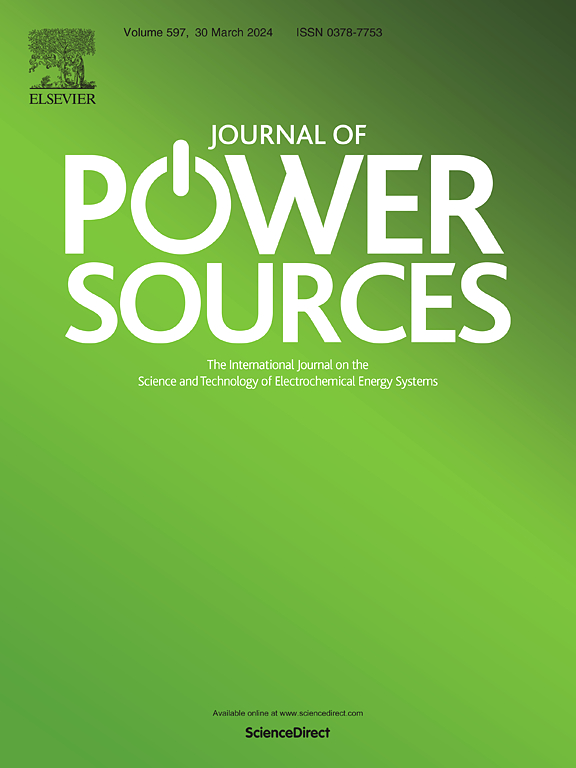基于显式模型预测控制的小型燃料电池混合动力汽车实时最优能量管理策略
IF 7.9
2区 工程技术
Q1 CHEMISTRY, PHYSICAL
引用次数: 0
摘要
能源管理策略是实现汽车行驶经济性、能源耐久性和实时能量分配的关键因素。针对低成本、计算能力有限的氢燃料电池/动力电池汽车,提出了基于显式模型预测控制(EMPC)的实时最优EMS。在建立预测模型、成本函数和约束条件的基础上,利用多参数二次规划理论和Matlab多参数工具箱3进行离线计算,得到了EMPC的线性分段仿射规律。Matlab和Advisor联合仿真结果表明,在两种标准循环条件下,与功率跟随策略、功率跟随模糊策略和常规模型预测控制策略相比,该策略分别降低了18.93%、2.87%、0.76%和11.79%、5.51%、1.22%的等效氢耗;在1-s采样周期内,其平均计算时间仅为6.48 ms,而其他策略的平均计算时间分别为1.33、1.83和10.44次。因此,该策略为该类燃料电池汽车提供了显著的燃油经济性和优异的实时控制性能。本文章由计算机程序翻译,如有差异,请以英文原文为准。
Real-time and optimal energy management strategy via explicit model predictive control for small fuel cell hybrid vehicles
An energy management strategy (EMS) is the crucial factor in achieving vehicle driving economy, energy source durability and real-time energy allocating. This paper proposes the real-time and optimal EMS for hydrogen fuel cell/power battery-based vehicles with low cost and limited computing power via explicit model predictive control (EMPC). Based on the establishment of prediction model, cost function and constraints, the linear piecewise affine law of EMPC is obtained by offline computation utilizing multi-parameter quadratic programming theory and Matlab's Multi-parameter Toolbox 3. The co-simulation results with Matlab and Advisor demonstrate the strategy reduces equivalent hydrogen consumption by 18.93 %, 2.87 %, 0.76 % and 11.79 %, 5.51 %, 1.22 % respectively compared to the power-following strategy, the power-following fuzzy strategy, and the conventional model predictive control strategy under two standard cycle conditions; and its average computing time within a 1-s sampling period is only 6.48 ms, while those of the other strategies are 1.33, 1.83, and 10.44 times, respectively. Therefore, the strategy provides notable fuel economy and excellent real-time control performance for this type of fuel cell vehicle.
求助全文
通过发布文献求助,成功后即可免费获取论文全文。
去求助
来源期刊

Journal of Power Sources
工程技术-电化学
CiteScore
16.40
自引率
6.50%
发文量
1249
审稿时长
36 days
期刊介绍:
The Journal of Power Sources is a publication catering to researchers and technologists interested in various aspects of the science, technology, and applications of electrochemical power sources. It covers original research and reviews on primary and secondary batteries, fuel cells, supercapacitors, and photo-electrochemical cells.
Topics considered include the research, development and applications of nanomaterials and novel componentry for these devices. Examples of applications of these electrochemical power sources include:
• Portable electronics
• Electric and Hybrid Electric Vehicles
• Uninterruptible Power Supply (UPS) systems
• Storage of renewable energy
• Satellites and deep space probes
• Boats and ships, drones and aircrafts
• Wearable energy storage systems
 求助内容:
求助内容: 应助结果提醒方式:
应助结果提醒方式:


